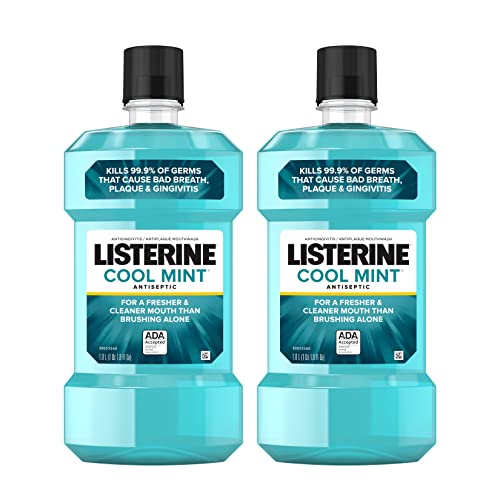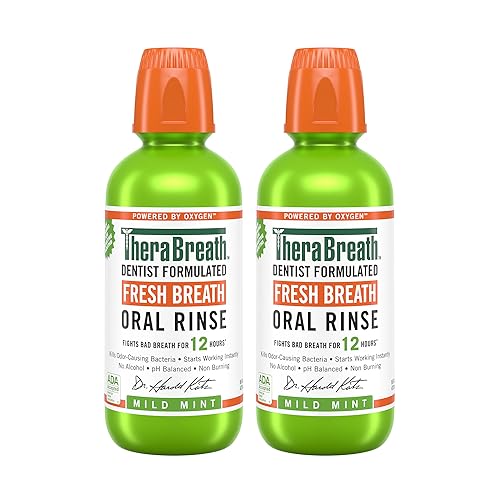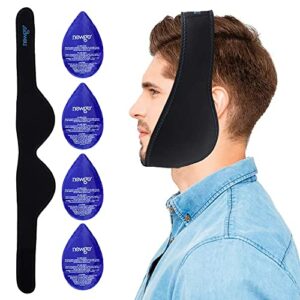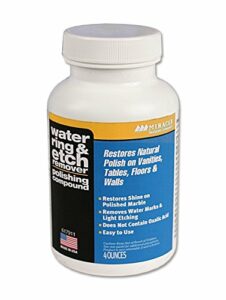Have you ever been in a situation where you felt self-conscious about your breath? We’ve all been there, and we understand how uncomfortable and embarrassing it can be. That’s why we’re here to help you tackle the FAQs about using mouthwash for fresh breath. We know that finding the right solution for bad breath can be overwhelming, but don’t worry, we’ve got your back. In this blog post, we’ll answer all your burning questions and provide you with the knowledge you need to confidently incorporate mouthwash into your oral hygiene routine. So, let’s dive in and discover the secrets to fresher breath together.
Achieve Lasting Freshness with the Bestselling Mouthwashes
What is mouthwash and how does it work?
Mouthwash is a popular oral hygiene product that has been used for centuries to promote better breath and oral health. It is a liquid solution that is swished around the mouth and then spit out, leaving behind a refreshing feeling and a clean mouth. In this blog section, we will explore what mouthwash is, how it works, and the benefits it offers.
Understanding the Ingredients
Antiseptic and Antibacterial Properties
One of the key ingredients found in mouthwash is antiseptic or antibacterial agents. These ingredients help to kill bacteria and prevent the growth of harmful microorganisms in the mouth. Common antiseptics used in mouthwash include:
- Chlorhexidine
- Cetylpyridinium chloride (CPC)
- Essential oils (such as thymol, menthol, and eucalyptol)
Breath-freshening Ingredients
Mouthwash also contains breath-freshening ingredients that help mask odors and leave your breath smelling pleasant. These ingredients can vary from one mouthwash brand to another and may include:
- Peppermint or spearmint oil
- Wintergreen
- Cinnamon
How Does Mouthwash Work?
Reaching Areas Missed by Brushing and Flossing
Mouthwash is an excellent complement to regular brushing and flossing. It can reach areas in the mouth that a toothbrush or floss may miss, such as the back of the tongue, between teeth, and along the gumline. This extra level of cleanliness helps to remove plaque and food particles, reducing the risk of cavities, gum disease, and bad breath.
Killing Bacteria
The antiseptic and antibacterial properties of mouthwash play a crucial role in killing bacteria and preventing oral infections. Bacteria in the mouth can lead to various oral health issues, including tooth decay, gum disease, and inflammation. Mouthwash helps to control bacterial growth, promoting a healthier oral environment.
Freshening Breath
Bad breath, or halitosis, can be embarrassing and affect your self-confidence. Mouthwash helps to freshen breath by neutralizing or masking odor-causing substances in the mouth. The breath-freshening ingredients in mouthwash provide a temporary solution to bad breath, leaving you feeling more confident throughout the day.
Benefits of Using Mouthwash
- Reduces the risk of gum disease and cavities
- Helps control bad breath
- Provides an extra level of cleanliness
- Promotes a healthier oral environment
Can mouthwash replace brushing and flossing?
Maintaining good oral hygiene is crucial for a healthy mouth and a confident smile. While mouthwash can be a valuable addition to your oral hygiene routine, it should not replace brushing and flossing. In this blog section, we will discuss why brushing and flossing are essential and how mouthwash can complement these practices.
Brushing and Flossing: The Basics
Brushing and flossing are the foundation of a proper oral care routine. Let’s take a closer look at why they are so important:
Brushing
- Brushing twice a day helps remove plaque, a sticky film of bacteria that can lead to tooth decay and gum disease.
- It helps remove food particles, debris, and stains from the teeth, leaving them feeling clean and refreshed.
- Proper brushing technique ensures that all surfaces of the teeth and gums are thoroughly cleaned.
Flossing
- Flossing removes plaque and food particles from between the teeth and along the gumline, where toothbrushes cannot reach.
- It helps prevent gum disease by reducing inflammation and removing bacteria that can lead to infection.
- Flossing also helps maintain fresh breath by eliminating trapped food particles.
Mouthwash: Complementing Brushing and Flossing
Mouthwash can provide additional benefits to your oral care routine, but it should not be relied upon as a substitute for brushing and flossing. Here’s why:
Germ-Killing Benefits
- Mouthwash contains antimicrobial ingredients that can kill bacteria and reduce plaque buildup.
- It can help freshen breath by neutralizing odor-causing compounds in the mouth.
- Mouthwash can reach areas that brushing and flossing may miss, providing an extra layer of protection against oral diseases.
Breath-Freshening Benefits
- Mouthwash often contains ingredients like menthol or mint that leave your breath smelling fresh and clean.
- It can temporarily mask bad breath, providing a quick solution for social situations.
Limitations of Mouthwash
- Mouthwash cannot physically remove plaque and debris from the teeth and gums like brushing and flossing can.
- It cannot reach deep between the teeth or below the gumline where bacteria can accumulate.
- Regular brushing and flossing are necessary to physically disrupt and remove plaque, keeping your mouth healthy.
Are all mouthwashes the same?
When it comes to maintaining good oral hygiene, using a mouthwash can be an effective addition to your daily routine. However, not all mouthwashes are created equal. Understanding the different types of mouthwashes available can help you choose the one that best suits your needs. Let’s take a closer look at the various options:
1. Cosmetic Mouthwashes
Cosmetic mouthwashes are primarily designed for temporary breath freshening. They often contain ingredients like mint or other flavorings to mask bad breath. While they may provide a pleasant taste and temporarily improve your breath, they do not offer any therapeutic benefits for your oral health.
Benefits:
- Provides a quick solution for freshening breath
- Convenient for on-the-go use
Limitations:
- Does not address underlying oral health issues
- Lacks therapeutic benefits
2. Therapeutic Mouthwashes
Therapeutic mouthwashes, on the other hand, are formulated to provide specific oral health benefits. They can help combat issues such as plaque buildup, gum disease, tooth sensitivity, or dry mouth. These mouthwashes often contain active ingredients such as fluoride, antimicrobial agents, or desensitizing agents.
Benefits:
- Helps reduce plaque and gingivitis
- Provides fluoride protection against tooth decay
- Helps alleviate tooth sensitivity
- Moisturizes and relieves dry mouth symptoms
Limitations:
- May require regular and consistent use to see desired results
- Not suitable for everyone, depending on specific dental conditions or allergies
3. Prescription Mouthwashes
Prescription mouthwashes are typically recommended by a dentist for more serious oral health issues. They are often prescribed to treat conditions like severe gum disease, oral infections, or post-surgical care. These mouthwashes contain stronger active ingredients that require professional guidance for safe and effective use.
Benefits:
- Targets specific oral health problems
- Provides stronger antimicrobial or healing properties
Limitations:
- Requires a prescription from a dentist
- Should be used under professional supervision
It is important to note that while mouthwash can be a valuable addition to your oral hygiene routine, it should never replace regular brushing and flossing. Mouthwash should be used as a supplement to thorough dental care, not as a substitute.
When choosing a mouthwash, consider your specific needs and consult with your dentist. They can provide guidance based on your oral health condition, any existing dental work you may have, or any allergies or sensitivities you may have.
In summary, not all mouthwashes are the same. Understanding the different types of mouthwashes available and their specific benefits can help you make an informed decision. Remember to always prioritize regular brushing, flossing, and dental check-ups for optimal oral health.
What are the potential side effects of using mouthwash?
Using mouthwash is a common part of many people’s daily oral hygiene routine. It helps to freshen breath, kill bacteria, and promote overall oral health. However, it’s important to be aware of the potential side effects that may occur from using mouthwash. While these side effects are generally rare, it’s still crucial to understand them to ensure your safety and well-being.
1. Burning or Tingling Sensation
One of the potential side effects of using mouthwash is experiencing a burning or tingling sensation in your mouth. This can be uncomfortable and may occur due to the alcohol content present in some mouthwashes. Alcohol is known to cause a temporary burning sensation when it comes into contact with oral tissues. If you find this sensation to be too intense or persistent, it’s advisable to switch to an alcohol-free mouthwash.
2. Dry Mouth
Another possible side effect of using mouthwash is experiencing dry mouth. This occurs when the mouthwash disrupts the natural balance of saliva production in your mouth. Saliva plays a crucial role in oral health by helping to wash away food particles and neutralize acids. When saliva production decreases, it can lead to dryness, discomfort, and an increased risk of dental issues such as tooth decay and gum disease. To combat dry mouth, consider using a mouthwash specifically designed to alleviate this condition or consult your dentist for further guidance.
3. Allergic Reactions
In rare cases, some individuals may experience an allergic reaction to certain ingredients found in mouthwash. These reactions can range from mild to severe and may include symptoms such as swelling, redness, itching, or difficulty breathing. If you suspect an allergic reaction after using mouthwash, immediately discontinue its use and seek medical attention. It’s essential to carefully read the label and check for any ingredients that you may be allergic to before using a new mouthwash.
Ensuring Safe Use of Mouthwash
To minimize the risk of experiencing any side effects, it’s important to follow these guidelines:
- Read and follow the instructions on the mouthwash label carefully.
- Use the recommended amount of mouthwash, usually indicated by a cap or measuring device provided.
- Avoid swallowing mouthwash, as it is meant for external use only.
- Do not use mouthwash as a substitute for proper brushing and flossing.
- If you experience any adverse reactions after using mouthwash, discontinue its use and consult your dentist.
Remember, everyone’s oral health needs may vary, so it’s essential to consult with your dentist or oral healthcare professional for personalized advice and recommendations.
In conclusion, while the potential side effects of using mouthwash are generally rare, it’s crucial to be aware of them to ensure your safety and well-being. By understanding these potential risks and following the recommended guidelines for use, you can continue to maintain good oral hygiene and enjoy the benefits of mouthwash as a valuable addition to your daily oral care routine.
Helpful Tips and Final Thoughts for Freshening Your Breath with Mouthwash
In conclusion, we hope that this blog post has answered some of your frequently asked questions about using mouthwash for fresh breath. We understand that having bad breath can be embarrassing and frustrating, but incorporating mouthwash into your oral hygiene routine can help. However, it is important to remember that mouthwash should not be relied upon as a standalone solution. It should be used in addition to regular brushing and flossing to ensure optimal oral health. We encourage you to consider your specific needs when choosing a mouthwash and to consult with your dentist if you have any concerns. By following these guidelines and incorporating mouthwash into your routine properly, you can enjoy the benefits of a fresher breath and a healthier mouth.
Frequently Asked Questions about Using Mouthwash for Fresh Breath
How often should we use mouthwash for fresh breath?
To maintain fresh breath, it is generally recommended to use mouthwash at least once a day, preferably after brushing and flossing your teeth. However, the frequency of using mouthwash may vary depending on individual oral health needs. Some people may benefit from using mouthwash more often, such as after meals or when experiencing bad breath. It is important to follow the instructions provided by the mouthwash manufacturer and consult with your dentist for personalized advice.
Are there any specific ingredients we should look for in a mouthwash for fresh breath?
Yes, there are certain ingredients that you can look for in a mouthwash to help freshen your breath. Here are a few key ingredients to consider:
- Chlorhexidine: This ingredient is effective in killing bacteria that can cause bad breath and gum disease. However, it is usually found in prescription mouthwashes and may cause staining on teeth with long-term use.
- Cetylpyridinium Chloride (CPC): CPC is another common antimicrobial ingredient that helps reduce bacteria in the mouth, which can contribute to bad breath. It is often found in over-the-counter mouthwashes and has been proven effective in freshening breath.
- Essential Oils: Certain essential oils like peppermint, spearmint, and eucalyptus have natural antibacterial properties and can provide a refreshing sensation in the mouth. Look for mouthwashes that contain these essential oils for a minty fresh breath.
- Fluoride: While not directly related to fresh breath, fluoride is an important ingredient to look for in mouthwash as it helps strengthen tooth enamel and prevent tooth decay.





















